“They should teach this in school,” is a sentence that sadly is uttered far too often by parents and grandparents who are increasingly concerned about what their children are learning in government and private schools. The COVID-19 shutdowns truly opened the eyes of millions of Americans about what was being taught in classrooms across the country…and what wasn’t.
There was perhaps no better advertisement for homeschooling than the Zoom classrooms of the pandemic era and the plethora of parents being hauled out of school board meetings for voicing their shock and displeasure about the lack of time being spent on teaching practical and useful life skills and the academic bedrock subjects and instead a keen focus on liberal cultural issues.
Life skills, vocational skills, and financial literacy are possibly the three most important things children should be taught in school after reading, writing, history, and, science lessons.
Financial Literacy Skills
 Many young folks graduate from high school without even a basic knowledge of how to balance a checkbook, fill out a job resume, manage their finances, or navigate other common everyday challenges.
Many young folks graduate from high school without even a basic knowledge of how to balance a checkbook, fill out a job resume, manage their finances, or navigate other common everyday challenges.
This decided lack of preparation can often lead to financial struggles, stress, missed opportunities, and big mistakes and it takes a long time (if ever) from which to recover.
When I was actively selling real estate on the side a few years back, I lost count of how many young couples ranging in age from 21 to even 35 had no idea what having a credit score meant. In addition to not knowing how banks used a credit score to determine whether or not you were loan worthy for a mortgage or even a vehicle, they also had been blissfully unaware of actions they had taken to tank a score they did not even know was being calculated.
One story I still vividly remember was about a young man who had filled out no less than 8 credit card applications before a Cincinnati Reds baseball game just to get the three duffle bags. He had no clue that there had been 8 hard hits to his credit score that would remain to show for at least two years.
Teaching Practical Skills
According to a survey by the Council for Economic Education, only 22 states require high school students to take a course in personal finance to graduate. Since that 2022 study – and the fervent pressure from parents, there are now 35 states that require students to earn half a credit in personal financial skills.
Simply learning how to balance a checkbook or debit card statement, and making a monthly budget for bills and groceries, could be just a few of the facets of a financial literacy course. Here is a good source of information if you want to save money and discover how you can become more self-sufficient.
Teaching practical financial literacy skills to our young people helps them develop a strong foundation for independence and responsible decision-making. By learning how to budget, save, invest, and manage credit, students can avoid common pitfalls like debt and overspending.
Life Skills
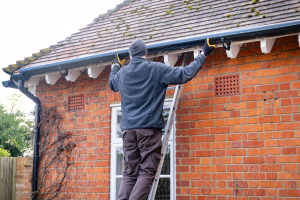 Teaching life skills in school can help our youth develop not only a necessary skill set to function independently in everyday life as an adult but also to develop resilience and adaptability. As a prepping family, you also probably have some distinct ideas about why life skills should be taught both often and from a young age.
Teaching life skills in school can help our youth develop not only a necessary skill set to function independently in everyday life as an adult but also to develop resilience and adaptability. As a prepping family, you also probably have some distinct ideas about why life skills should be taught both often and from a young age.
When children are taught life skills they become equipped with problem-solving, communication, and decision-making skills. Achieving these basic life skills building blocks, in turn, allows them to hone this skill set so they are better prepared to navigate challenges and setbacks in both their personal and professional lives, once they become adults.
The first thing you may think of when the term life skills are tossed about would be an old-fashioned home economics class, but there is far more to functional life skills than learning how to bake cookies or sew a ribbon on a hand towel to make an apron. Life skills education should be a truly unisex endeavor and not reserved solely for future homemakers.
Related: 10 Life Skills To Teach The Snowflakes
What could be more challenging than living through a disaster? Science class is just one place where real-life skills should (and could) be taught in schools. Teaching children and teens to understand what causes tornadoes, hurricanes, flash flooding, wildfires, house fires, and other natural disasters is the first step in preparing to be ready to survive them. Making a plan on what supplies, skills, and communication tools if cellphones are not working, map and compass reading skills, fire starting, off-grid cooking, as well as CPR and first aid.
Practical Life Skills Instruction
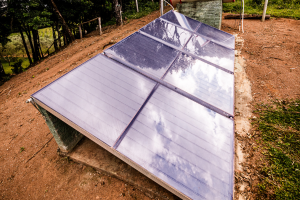 Life skills learning units could (and should) include: time management, learning how to write a job resume, communication skills, how to conduct a job interview, basic household skills like sewing on a button or fixing a hem, gardening, food preservation, basic automotive skills like checking tire pressure, changing a tire, or checking engine fluids, how to create a schedule to accomplish big daily tasks, weekly, or monthly tasks, how to send a professional email, and so on.
Life skills learning units could (and should) include: time management, learning how to write a job resume, communication skills, how to conduct a job interview, basic household skills like sewing on a button or fixing a hem, gardening, food preservation, basic automotive skills like checking tire pressure, changing a tire, or checking engine fluids, how to create a schedule to accomplish big daily tasks, weekly, or monthly tasks, how to send a professional email, and so on.
The concept of life skills should also include disaster preparedness and wilderness skills. I recommend this book, written by a true wilderness expert, as a good place to master the skills that someday you might need to survive in the wild. I created the Homestead Homeschool curriculum to do just that. Because the lack of life skills education extends beyond just the government schools. While many (if not most) homeschool parents deeply infuse life, vocational, and financial literacy skills into their homeschool, there simply was not a curriculum that scratched beyond the surface of any essential life skills topic. The few basic levels and often teen-only homeschool printables that did exist treated these skills as an add-on elective and not a core subject that could (and should) be braided into the child’s reading, math, science, and history curriculum.
Real-Life Skill Building
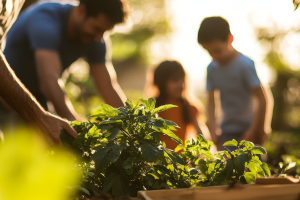 Take, for example, the subject of gardening – or growing your own groceries as we self-reliant folks prefer to dub it. Food cultivation offers a bevy of learning opportunities across the board.
Take, for example, the subject of gardening – or growing your own groceries as we self-reliant folks prefer to dub it. Food cultivation offers a bevy of learning opportunities across the board.
When teaching children about gardening they are obviously learning science, but they are also reading.
Teachers or moms can incorporate writing into a gardening lesson by having the children create planting logs, and journals.
Add some math into the mix and calculate yield per seed, measure the seeds and compare them to different seeds, chart the garden landscape to scale and plan your planting, and determine how many meals the harvested food will provide for a family of four or how many different sizes Mason jars will be needed to can the produce. These are the skills that you can count on to help you in life. Skills like the ones you can find in this guide, show you how to make use of the land to survive in any scenario.
Food preservation is also a natural life skills class fit for not just teens but young children. A school garden could be the starting ground for learning where our food comes from, how to grow it, and equally importantly, how to preserve it. Teaching the children how to dehydrate, ferment, and both water bath and pressure canning food is chock-full of science and math.
Related: 19 Survival Skills You Should Teach Your Children This Summer
History would not be left out in a gardening lesson either. The children can learn about the history of agriculture in the United States and discover how it has changed since the Industrial Revolution by not only equipment used but also the dwindling of family farms as factory farms arose. They can also learn about different types of farming techniques used around the world, the environmental impact of till vs. no-till farming, and how the invention of GMO seeds has impacted modern agriculture. See, all of that traditional and useful academic learning can take place from just a single unit about gardening during a life skills class.
Vocational Skills
 “Shop” classes have almost disappeared completely from traditional high schools and relegated only to vocational school settings – learning districts where college-bound students do not attend.
“Shop” classes have almost disappeared completely from traditional high schools and relegated only to vocational school settings – learning districts where college-bound students do not attend.
Vocational skills should at least be near the top of the list of things they should teach in schools.
Learning a skilled trade is a superb way to make a living without swimming in college debt. But, even students who plan on attending college can surely benefit from learning (and mastering) basic vocational skills that they can draw upon for the rest of their lives.
Having a basic grasp of how to accomplish both skilled trade tasks and common chores is yet another type of thing they should teach in schools. What too many school administrators and even parents sometimes fail to grasp, is the fact that vocational skills education can be just as academically challenging as college prep classes – and equally valuable. Here you can find over 70 projects to survive a world without electricity – in my opinion, everyone should know them sooner rather than later.
A class in basic carpentry will be far more useful and beneficial to some students than the two years of a foreign language often required in a college prep schedule of courses by government high schools. Teens who live in a rural Appalachian county as I do will find the ability to build or at least understand how to build a backyard deck or patio roof incredibly useful than speaking French.
True Grit (The Most Important Skill They Don’t Teach in School)
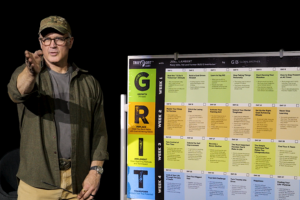 There is another very important life skill and it’s also not taught in school. It’s called True Grit.
There is another very important life skill and it’s also not taught in school. It’s called True Grit.
Having it means maintaining your determination and focus on achieving your goals despite experiencing setbacks and failure.
In life, having this skill is a better predictor of success than intellectual talent, good looks, physical strength, education, or the family you came from.
But make no mistake about it, this is NOT a skill you’re born with. It’s a skill you can teach, learn, and master just like any other skill. And once you get it down, it stays with you for the rest of your life.
One of the very few places on Earth where this life skill is taught is right here at The True Grit Academy, where you can learn it directly from a retired Navy SEAL Combat Veteran and BUD/S Instructor. Unlike the motivational influencers you see on YouTube and TikTok, the Academy will create real change. The best part is that people who master True Grit don’t need discipline or willpower, they achieve their goals naturally and with ease. It’s just like riding a bike or throwing a football, it’s something anyone can learn.
Final Thoughts
Spend a few moments pondering all the things that you do during any given month…now expand that thought process to an entire year of your life. Which skills and education do you regularly draw upon more in your daily life, something you learned about poetry in English class or how to find a stud in a wall so you could use a drill and a level to hang a photo of your child? While many of us are blessed with parents who teach us valuable life skills from an early age and go the extra mile to make sure we learn how to manage our time, and money, and develop a work ethic, that just is tragically not the norm for most children growing up in America anymore.
The one thing they must start to teach in schools is how to be functional human beings who can think, infer, analyze, and plan to address issues and problems they will actually be forced to deal with in adulthood. Vocational, life, and financial literacy skills are the cornerstone academic components necessary to accomplish that task for the future of not just individual children, but the nation as a whole.
If you want to raise a self-reliant child who can function in society both now, during, or after a long-term disaster, choosing a school or homeschool program that offers and appreciates the value of financial literacy, life skills, and vocational skills education will help you further those goals exponentially.
You may also like:
 You Should Never Ask Your Neighbor This
You Should Never Ask Your Neighbor This
Household Items You Need to Stock Up on Before the Upcoming Great Depression (Video)
Places to Avoid After an EMP Strike

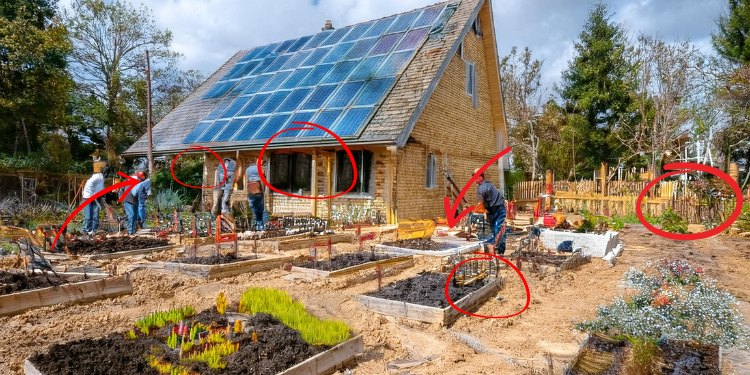

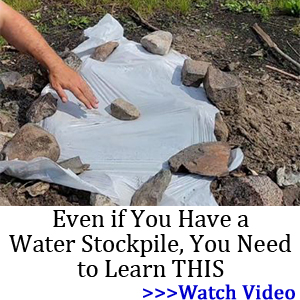






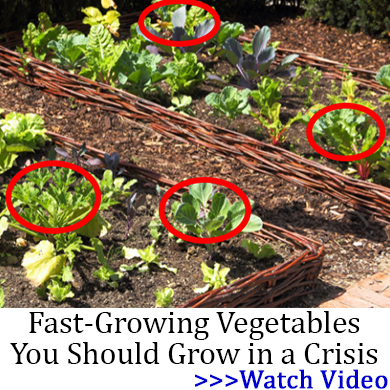

Good list, good ideas. Some of these things could and should be taught at home – and they used to be.
Amen to that. She is psycho!
We learned to balance a check book, fill out Income tax forms, what compound interest was versus simple interest all in the seventh grade (math class). We also had very basic instruction on first aid and how to do a fireman’s carry (PE class). This was admittedly in Montana and many years ago. The only thing that changed is that people thought that it ‘too hard’.
My father was a work a holic, never home, so home skills were taught by my mom. He paid bills, earned most of the family income … so she didn’t know how to balance a check book so obviously couldn’t teach it. He was a musician, so could teach me how to play a guitar, bass, banjo or fiddle … but I really had no interest in any of those … the skill he had was his Scotch German heritage … he was very thrifty. If he had $500 in his pocket, he would explain he couldn’t go out to eat, as he was broke. That I learned from my father … and combined with things I had to pick up on my own … financially, I have survived, and at times even thrived. Though I wish I had some other skills.
Hey Lisa Blake!! There is one life skill that you missed
out on.
It’s the skill of keeping your mouth shut so as not to
sound stupid.
Is it true that the tattoo on your forehead says
“Let go of my ears.I know what I’m doing
Great article
When I was 12 and wanted a bicycle (circa 1965), my father took me to the local tip and we picked up the needed basic parts like frame, wheels, handlebars, etc. With those and what he had in the shed (he rode a bicycle to and from work — never owned a car, so had plenty of spares parts) the two of us built a bicycle. The best education I ever had, and I also had the knowledge to look after it and maintain it.
Skill s taught in life , Home , work , Apprentices and street smarts from the actual dealing s with people
The Best is Entry Level Jobs , Military Training , Military Schools
My old saying is this , IF parents don’t teach you , then the life of hard Knocks will
No discipline or Work options , then Life of hard Knocks will
Apprintiships are the best unions or Military
But Farms , Ranch’s are the best for common sense and responsibility
Sowing and Reaping
Social dysfunctional Students learn WRONG VALUEs
no idiot professor or teacher can really teach values
This is why we need early age Jobs for Kids
Ethics, Values, Hard Work , Rewards for work , Goals , Goal setting